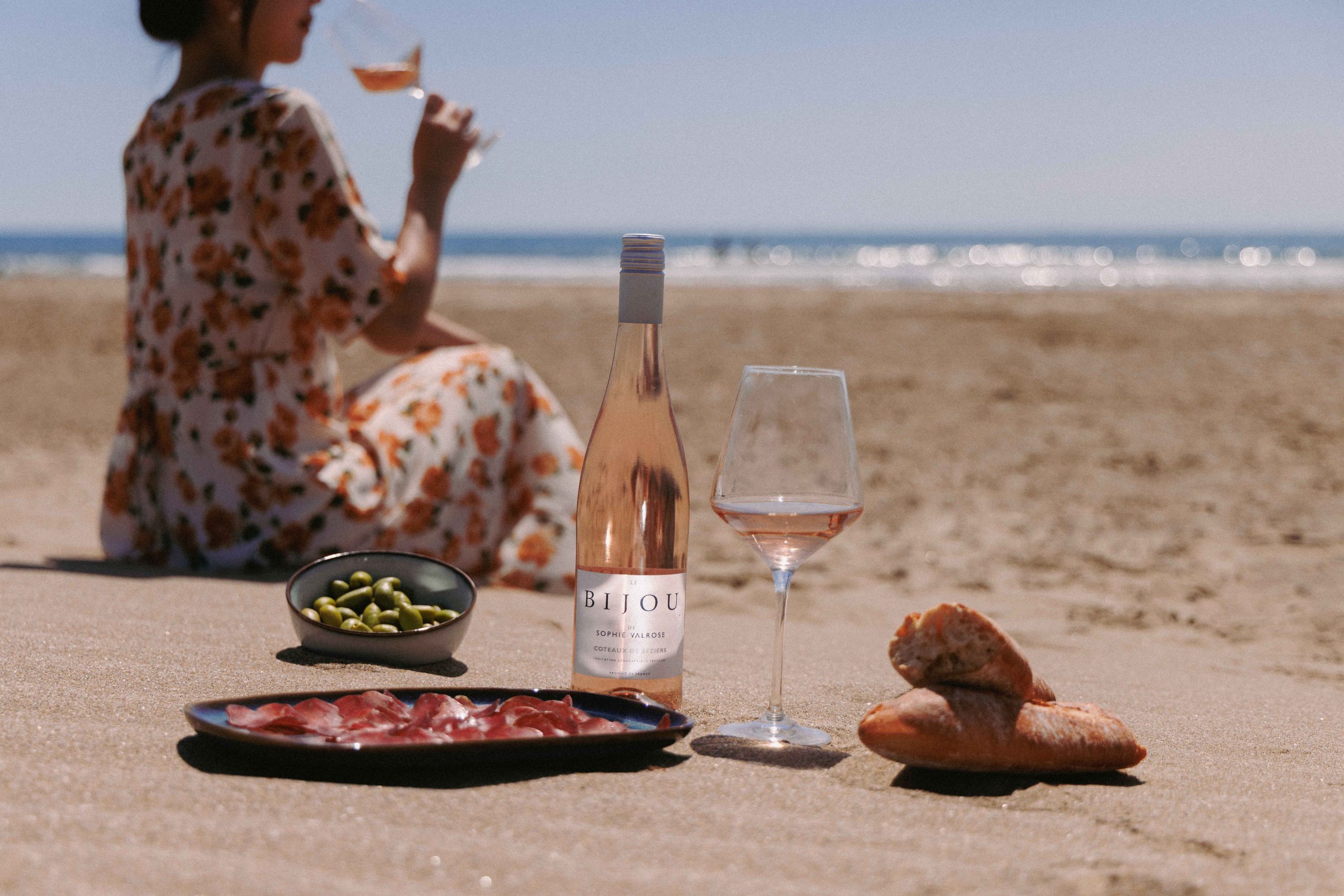In Good Company
By db staff writerWaitrose’s head of wine buying, Derek Strange, may not conform to industry stereotypes. But that’s the way that he – and his company – like it, as Chris Orr discovers
GIVEN THE FACT that Waitrose supermarkets only broke with tradition in 2001 and advertised its wares on television, it’s no surprise that the chain is perceived by some as being a little bit on the stuffy side. It is, after all, a part of the John Lewis partnership – a retailer not particularly known for its cutting-edge merchandising activity.
It’s perhaps equally no surprise, then, that when Julian Brind decided to give up the mantle of head honcho in the surpermarket’s wine buying department in 2002, Waitrose appointed someone who appears to be something of a company man, rather than wine impresario, to the position.
Actually, strike the "appears" bit. Derek Strange is a company man, through and through. If you cut Strange in half, you’d probably find the word "Waitrose" running through him, much the same way that "Brighton" runs through a stick of pink rock. Strange started at Waitrose in 1971 – the same year, incidentally, that we introduced the decimal currency, Marc Bolan had a numberone hit with "Hot Rock," and Jim Morrison passed away.
So, all in all, an eventful year. His first role in the company sounded almost Pythonesque – "assistant to the assistant general manager, administration" – but it has culminated, 30 years later, in his current position as head of buying, wine, beers, spirits and tobacco.
So does a man who spent his career in such varied areas of buying and merchandising as dairy products, dry goods and the Waitrose bakery find it somewhat overwhelming to run a department stocked by MWs who presumably all know a lot more than him about wine? "Not really," chuckles Strange, "I am a lifelong supporter of Everton, and anyone who loves football knows that the midfield position is very important, and I see myself very much in that position – harnessing a very good team together and helping to make it work.
And we have Julian still working with us on a consultancy basis." Plus, he stresses, ten years as buyer for beers and spirits in the department means he’s not exactly a stranger to the wine-buying world.
"But that said," he continues, "I have more of a grocery background than wine and I think that I’ve tried to reflect that in our promotional programme. If you look at what we did at Christmas, for example, we had a deep cut on Champagne at 33% off. That proved very successful, not only because it drove more business through on the wine side – indeed we increased wines sales 50% on last year – but also because it helped raise sales in other areas. Australia and New Zealand sales were both up 30% and South African sales were up 56%.
"Historically I think it is quite interesting because we used to run quite a lot of promotions – some people might say too many. But when you actually confronted customers, very often they’d say ‘Oh yes, Waitrose, very nice shop, but don’t do many promotions.’ And yet there they were on the shelf.
So what we’ve done since last year – and the deep cut on Champagne was part of that – is to try to reduce the number of offers available, but increase the discount and highlight those cuts with very clear point-of-sale material. I think people are quite surprised by what they find now, but it is working.
"If you look at our Champagne promotion at Christmas, not only did it work for the WBS department, but it also translated itself quickly across the rest of the store. Historically, at Christmas-time we have lost market share, because people tend to go elsewhere for their so-called ‘bargains.’ But we actually retained market share this year, and because this brought extra footfall into the whole store, we benefitted then corporately as well as parochially."
But if Strange has helped revitalise promotional activity across the 140 stores, he has a very controlled take on the benefits of price promotions – for Waitrose at least. "When you see a lot of heavy discount in the major competitions in the big five, it tends to be on those lines that are well-supported by the big companies.
Nine times out of ten they are brands. Now, although brands are important to us as book ends to show the value of the wines that we stock, they are not dominant. And, therefore, our ability to reflect those promotions as frequently as the opposition, because they are a smaller proportion of our range, is reduced. But then I think this shows the clear difference between the "opposition" and ourselves, if you like."
Partner Content
So, essentially, is he admitting that they can’t compete with the "big boys" in promotional terms? "No, not at all. Obviously buying power does come into it – but I think that if you use promotions prudently you can gain footfalls and sales in the right way. But if you use them too frequently they can act as a disenfranchising tool, rather than an enfranchising tool.
Also, we’ve been around a long time, and we know our products and customers well – and there’s not a lot of sense in clogging up our distribution systems and chain with high volumes of product on which we are not going to make any money. We would rather be able to digest volumes and do it sensibly.
"Although promotions are imortant, they will never be a major thrust of Waitrose strategy. We’re looking at 12 weeks out of 52 as far as major deep cut promotional pushes are concerned. We have wines of the month, etc, but they tend to be multibuys of six bottles rather than just two or three. And when we do have a deep price cut promotion, we aim to counterbalance it by using any additional promotional space to highlight non-price promoted wines."
If this attitude sounds somewhat perverse for a "supermarket," it’s probably worth mentioning that Waitrose doesn’t really see itself as a supermarket in the traditional sense. With 140 stores, it is actually smaller in outlet terms – from the wine point of view – than someone like Oddbins, and significantly smaller than say, the Thresher Group.
Which is why, perhaps, Strange and his team have an attitude more akin to that of an independent retailer, rather than a supermarket chain. "I think a good example of why we’re very different from the big five is the listings of the likes of Duckhorn Vineyards or Pine Ridge from California, and a whole host of other similar products.
I think it shows us in the light of being more at the specialist end of the market rather than the price dominated end. But it also shows our passion and enthusiasm for the product. The last thing we want is for people to see us as price promotion-led. Our overall strength as a department rests on the integrity and provenance of a product whether it’s a wine brand or a small microbrewery.
"We have a very good relationship with a lot of our suppliers and it’s important that, while with some we’re quite big business, we don’t dominate, and so they find us an easy animal to feed. If you’re talking about some of the bigger competition on the major five, yes, it’s probably lovely to get the contract, but often it’s price-related rather than product related, and it can dominate your business. It’s great while it lasts, but when they decide to pull it or switch it, it can be devastating."
Perhaps the most extraordinary and indicative illustration of the attitude adopted by Waitrose is that with some key suppliers – many of whom the company has worked with for years, such as Burns Stewart – they don’t have a contract, simply a verbal agreement. "Well, that’s Waitrose," explains Strange, "and I think it reflects the strength of relationships we have with our suppliers and how it works."
The big question is whether Strange and his team can continue to operate this way in the long term. Depending on the outcome of the Morrisons-Safeway bid, Waitrose could find itself speeding up its planned expansion as key sites come onto the market, post any merger or consolidation of Safeway stores.
They’ve already proved themselves adept at picking up property bargains when they took up spare Somerfield sites several years ago and Strange confirms that the company is "always on the look-out for prime sites."
However, if rapid expansion is the way forward for the supermarket chain, it will be interesting to see how long it can maintain such an "independent" attitude towards its buying process – particularly in such a competitive field as wine.
"Well," says Strange, indicating that the desire, at least, is to keep things the way they are at the moment. "The thing to remember is that just because you’re big, it doesn’t mean you always have cost benefits. Product quality, for Waitrose, is and always will be king." Like we said, cut him in half…




